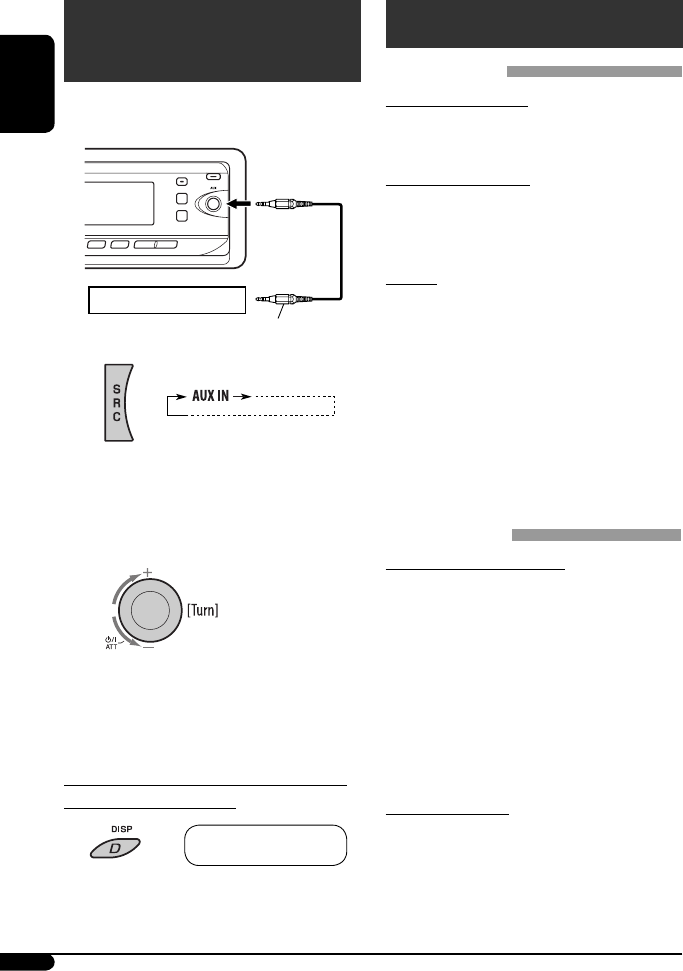
18
ENGLISH
External component
operations
You can connect an external component to the
AUX (auxiliary) input jack on the control panel.
~
Ÿ Turn on the connected component and
start playing the source.
! Adjust the volume.
⁄ Adjust the sound as you want. (See
pages 14 and 15.)
To check other information while listening
to an external component
AUX IN Ô Clock
Stereo mini plug
Portable MD player, etc
More about this unit
Basic operations
Turning on the power
• By pressing SRC on the unit, you can also turn on the
power. If the source is ready, playback also starts.
Turning off the power
• If you turn off the power while listening to a track,
playback starts from where it has been stopped
previously, next time you turn on the power.
General
• If you change the source while listening to a disc or
an iPod, playback stops.
Next time you select “CD” or “IPOD” as the playback
source, playback starts from where it has been
stopped/paused previously.
• After ejecting a disc or disconnecting an iPod,
“NO DISC” or “NO IPOD” appears and you cannot
operate some of the buttons. Insert another disc,
reconnect an iPod, or press SRC to select another
playback source.
Tuner operations
Storing stations in memory
• During SSM search...
– All previously stored stations are erased and
stations are stored newly.
– Received stations are preset in No. 1 (lowest
frequency) to No. 6 (highest frequency).
– When SSM is over, the station stored in No. 1 will
be automatically tuned in.
• When storing a station manually, the previously
preset station is erased when a new station is stored
in the same preset number.
FM RDS operations
• Network-Tracking Reception requires two types of
RDS signals—PI (Programme Identification) and AF
(Alternative Frequency) to work correctly. Without
receiving these data correctly, Network-Tracking
Reception will not operate correctly.
EN14-19_KD-PDR51_003A_f.indd 18EN14-19_KD-PDR51_003A_f.indd 18 11/23/06 1:33:27 PM11/23/06 1:33:27 PM


















